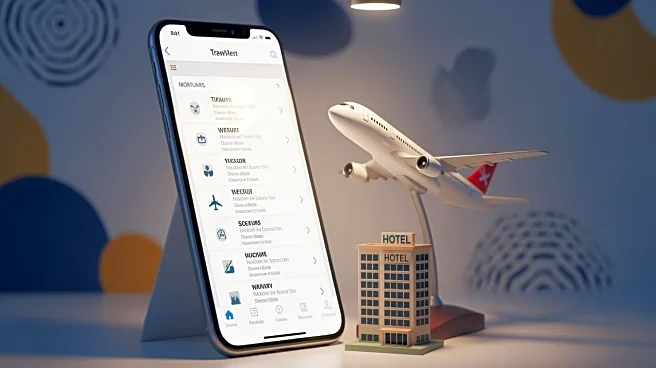What's Happening?
WhatsApp is increasingly being adopted by airlines, online travel agencies, and hotels as a platform for delivering services such as boarding passes and ride-hailing. Meta is enhancing its business tools,
including Flows, the Cloud API, and Click-to-WhatsApp ads, while brands explore chatbots and broadcast channels. This transition aims to streamline routine tasks, improve real-time communication, and maintain a consistent message thread for travelers. The app is becoming a central hub for travel bookings, service updates, and trip information, promising faster service and reduced costs.
Why It's Important?
The integration of WhatsApp into travel services represents a significant shift in how these services are delivered, potentially reducing operational costs and improving customer satisfaction. By centralizing communication and transactions within a single app, travel companies can offer more efficient and personalized services. However, this reliance on WhatsApp raises concerns about privacy, data protection, and dependency on a single platform, which could impact brand trust and operational stability.
What's Next?
Travel brands are likely to continue integrating WhatsApp into their operations, leveraging chatbots and AI tools to enhance service delivery. Meta's introduction of conversation-based pricing and new features like Flows and Channels will push more of the travel lifecycle into chat, emphasizing personalization and efficiency. Brands must navigate privacy regulations and platform dependencies to maintain customer trust and operational effectiveness.
Beyond the Headlines
The shift to WhatsApp as a travel service platform could lead to broader changes in customer service models across industries, emphasizing real-time communication and personalized service. Ethical considerations around data privacy and consent will become increasingly important as more companies adopt similar strategies.











